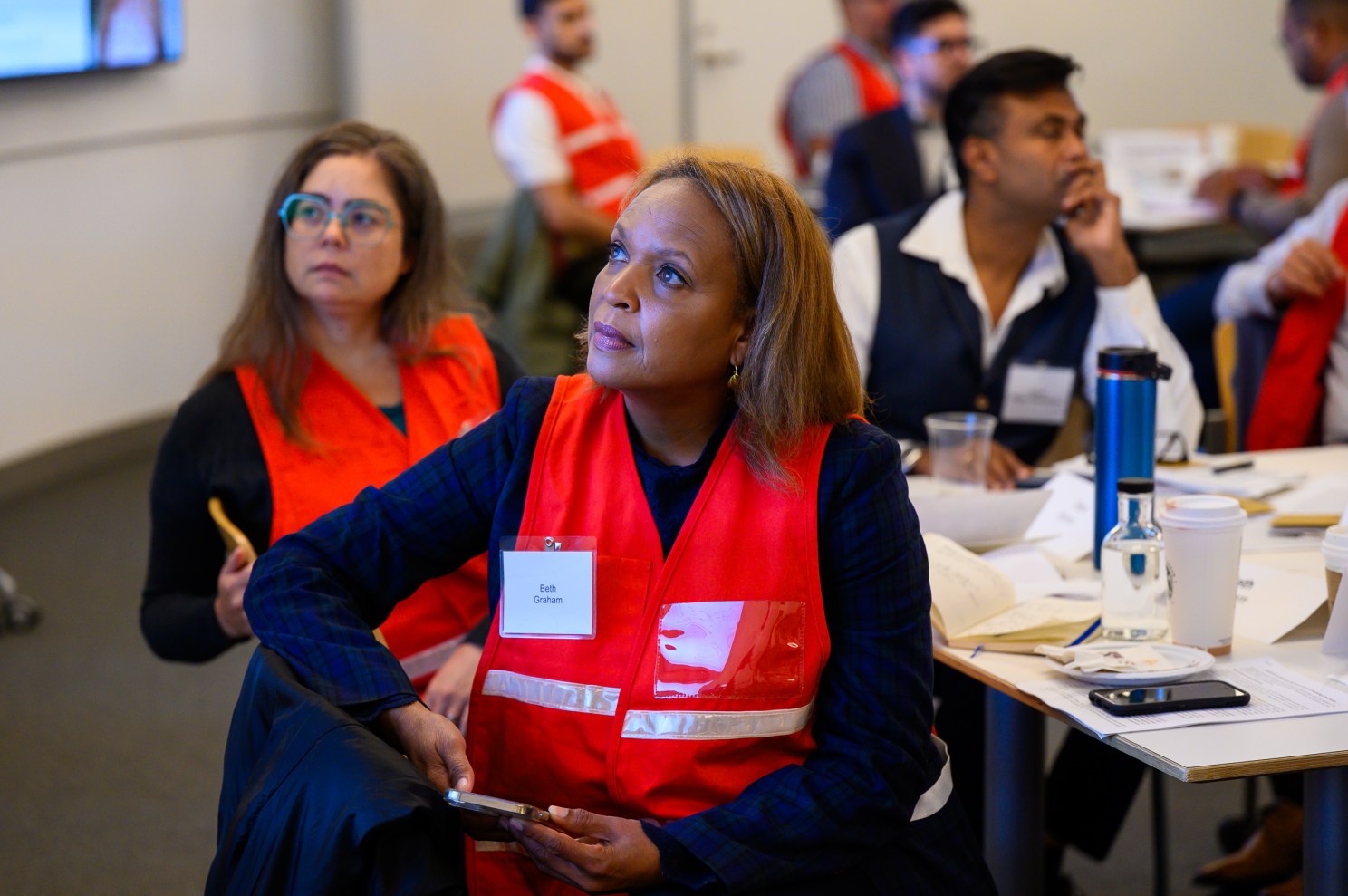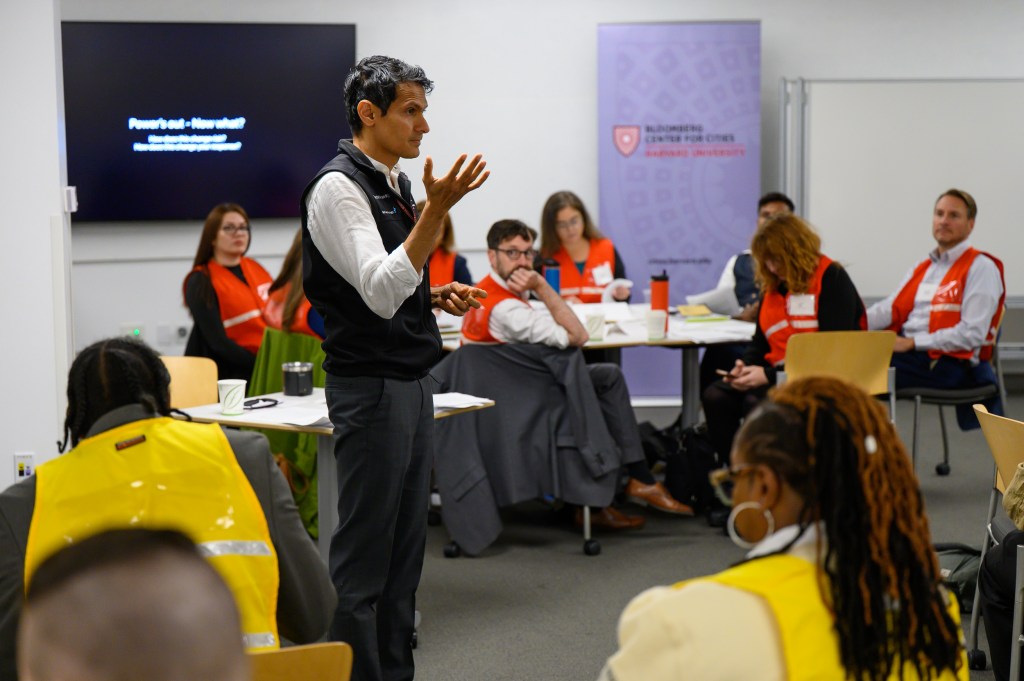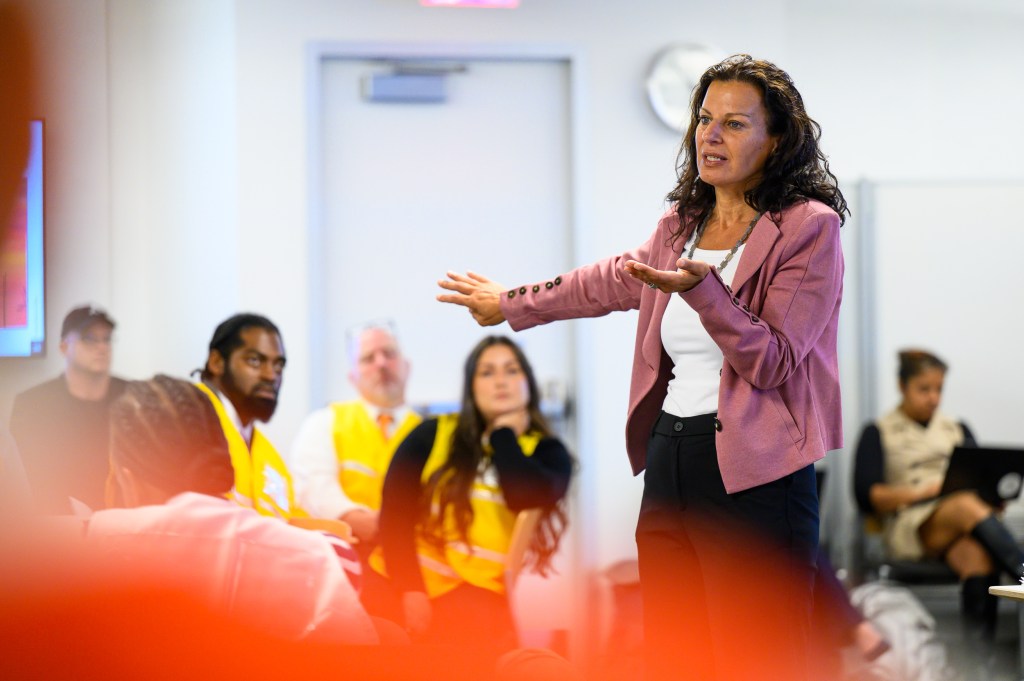Confronting extreme heat, cities prepare for a silent killer

Leaders from seven cities across the U.S. participated in a Heat Simulation workshop hosted by Data-Smart City Solutions, part of the Bloomberg Center for Cities at Harvard University, in collaboration with CrisisReady.
Extreme heat is the most deadly climate risk in the United States, killing more people than disasters such as hurricanes, tornadoes, and floods combined. Mayors and other senior city officials have a critical role to play in preventing these deaths and ensuring the safety of their residents. On Sept. 18, leaders from seven cities across the country came together at Harvard to participate in a Heat Simulation workshop to share ideas and learn best practices for dealing with this “silent killer.”
The gathering, organized by the team at Data-Smart City Solutions — part of the Bloomberg Center for Cities at Harvard University — in collaboration with CrisisReady, hosted at the Harvard Data Science Initiative, was part of Harvard Climate Action Week 2025, an annual convening sponsored by Harvard’s Salata Institute for Climate and Sustainability. Several cities from Data-Smart’s heat learning cohort sent representatives to simulate a day of extreme heat, based on a case study of the hottest city in the U.S., Phoenix.

The 37 city leaders in attendance were assigned to six tables, depending on their role, with each representing a different facet of local government such as Public Works and Utilities or Parks and Transportation. As attendees donned different colored vests to ground themselves in the simulation, Satchit Balsari of Harvard Medical School and Beth Israel Deaconess Medical Center, the co-director of CrisisReady, set the morning’s agenda.
This unique first-of-its-kind simulation is based on hundreds of hours of archival news footage from recent heatwaves in Phoenix and embeds mini learning modules, moving participants along 29 carefully choreographed sequences combining audiovisual material, breakout groups, and quick lessons. Rob Meade, an expert in thermal physiology and fellow at the Salata Institute’s South Asia Cluster, explained how heat and humidity affected human health on various time scales. Professor Caroline Buckee from Harvard T.H. Chan School of Public Health described the challenges with ascertaining impact of both heatwaves and the city’s response, and Balsari and emergency room physician and Harvard Medical School faculty Dr. Tess Wiskel guided the team through clinical and public health preparedness.

For the city leaders, this was an invaluable space to learn from top emergency preparedness experts like Bloomberg Center for Cities faculty affiliate Juliette Kayyem of Harvard Kennedy School. Kayyem, an internationally renowned expert on crisis management and homeland security, provided attendees with practical advice including a call to review and update their communications strategies around heat emergencies.
City participants also shared their own local governments’ approaches. “I valued the diversity of cities in the room,” said Beth Graham, director of Stakeholder Engagement of the city of Atlanta Mayor’s Office of Sustainability and Resilience. “To be able to see what other cities are doing for their communities, and how we’re addressing the same root issue customized to the needs of our local community was inspiring but also actionable.”




